The incredible story of the man who raised Malala
Ziauddin Yousafzai speaks exclusively to The Express Tribune about new book, education and importance of feminism
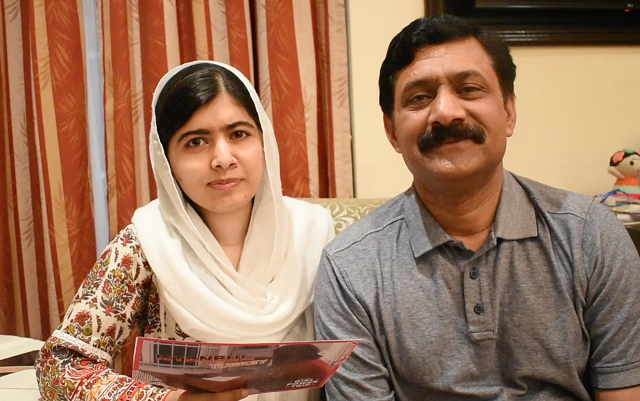
Nobel laureate Malala Yousafzai with her father Ziauddin Yousafzai in Mexico City. PHOTO COURTESY: MALALA FUND
Yousafzai is the father of Malala Yousafzai, who was shot by the Taliban in 2012 for speaking up for the right of girls' education in Pakistan. Despite being shot in the head, she miraculously survived the attack and became a global phenomenon when she recovered and continued her fight.
The family has since settled in the United Kingdom and Malala is currently studying at Oxford University. In 2014, Malala won the Nobel Peace Prize and made history by becoming the youngest person to ever receive the award. She found out about her win while still in class at school.
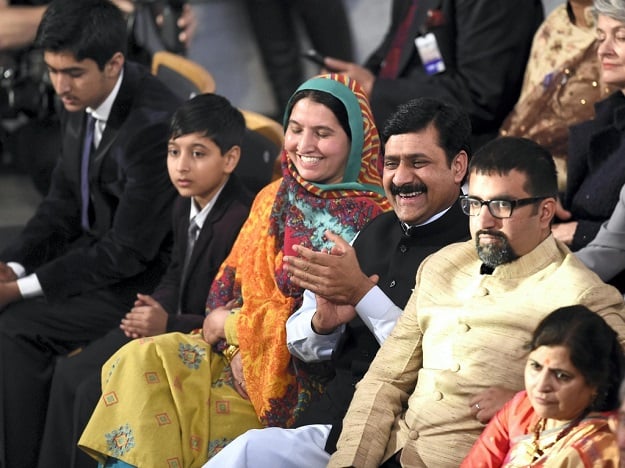 MalalaÔÇÖs brothers, Khushal and Atal, mother Toor Pekai, father Ziauddin and co-laureate Kailash SatyarthiÔÇÖs son Bahawan at the Nobel Peace Prize ceremony in Oslo. PHOTO: AFP
MalalaÔÇÖs brothers, Khushal and Atal, mother Toor Pekai, father Ziauddin and co-laureate Kailash SatyarthiÔÇÖs son Bahawan at the Nobel Peace Prize ceremony in Oslo. PHOTO: AFPIn 2013, Yousafzai and her father set up the Malala Fund, a global non-profit organisation which advocates education for all, especially girls. Malala Fund works in under-developed countries┬ásuch as Afghanistan, India, Lebanon, Nigeria, and Pakistan, engaging with policy experts and leaders to increase education spending.
The Express Tribune spoke to Ziauddin Yousafzai about the book, feminism and gender roles in society, and the importance of education in an extensive interview a few days after the launch. A condensed version of the interview has been reproduced below for interested readers, and an audio recording accompanies the detailed answer to each question.
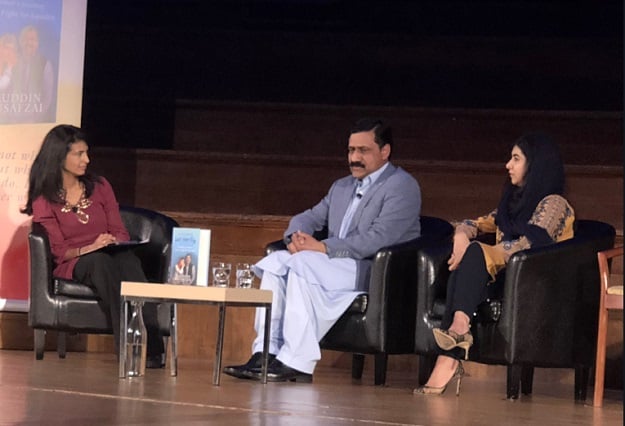 Ziauddin Yousafzai and his daughter Malala Yousafzai at Centre Hall, Westminster. PHOTO: TWITTER
Ziauddin Yousafzai and his daughter Malala Yousafzai at Centre Hall, Westminster. PHOTO: TWITTERIn conversation with Ziauddin Yousafzai
You often say that do not ask me what I did, but rather, what I did not do, with regards to raising my daughter. In fact, the title of the book is a tribute to this little saying. As a father, what advice do you have for other men raising families, especially in Pakistan?
People ask me about the things I did to mentor and train my daughter, and I tell them that do not ask me what I did, but ask me what I did not do; I did not clip her wings. If you look at these lines in the context of a patriarchal social setup, you will understand that this is the key. We should not clip the wings of our daughters and sisters, who constitute more than half of our population.
In our society, we have different social values for a boy and girl from the same family. The boy is free to go to school, and is encouraged to speak in front of people, and to be brave, all the individual abilities which a boy enjoys and a girl is prevented from. This is the reason I tell people to let their girls fly. They have equal rights, they have equal potential, and they have equal human dignity, compared to boys.
So what you wish for your sons, what you dream for your sons, do dream for your daughters. And trust me, our daughters are amazing, they are our pride, they are not our shame. As a father, my humble request to men, speaking from my experience, is to be dignified, to be good, to be brave. Bravery does not lie in trying to control your daughters, by being hard on them. To be honest, by doing these things, you are making your own life so difficult. So I will ask men to make their lives easy, to be brave, to be brave and welcome social change. It has to come, we cannot stop it.
In the book, you discuss how you have come to appreciate the meaning of the word feminism since moving to the United Kingdom after having lived it for years while in Pakistan. How does the fight for gender equality compare in the east and west?
I heard about the word feminism when I moved from Pakistan to the United Kingdom, and have explored the meaning and definition of it since then. My understanding is that it means equality and liberty for men and women in the world. I think it is a good term, but I was a feminist long before learning the correct terminology.
I remember when I was eighteen-years-old and saw my cousin bound in a forced marriage. I questioned it and was very uncomfortable about it. I also had five sisters who did not go to school, and so I wrote a poem to give words to these feelings. In the poem, I make a pledge, a lifelong commitment, for the cause of equality, for the cause of gender equality. That was the beginning of my feminism, more than two decades ago.
I believe in feminism in action, it is not a verbal pronouncement. I would say that my first feminist 'act' was when I named Malala after a woman I admired. It was my belief in the power of the name and the individuality of the name, and I wanted my daughter to be known by her own name.
Coming to the second part of the question, yes, of course, there is a difference, and it lies in the level of advancement of this development. The West has been successful to a great extent in giving people individual freedom and liberty, it is pluralistic in terms of gender, class, caste, colour and creed. However, in the developing Muslim countries, we have to work-up, struggle and strive for that equality and justice.
There is also this misunderstanding that feminism is westernised. You have your own culture, your own traditions. But personally, I think it is not. You can be a feminist having good cultural traditions. It is not necessary to copy western civilisation, it is just believing in your daughters and sisters to have equal opportunities for them in education and jobs, or community life, as politicians and social entrepreneurs. I think we have a long way to go, but the beginning is encouraging, and people are changing, we are seeing a social transformation.
Malala Fund has been doing amazing work, not only in Pakistan but across the world. One of the questions people often ask is why cannot schools teach feminism courses to young boys and girls in Pakistan? Are the schools the fund has built doing anything in this regard?
Malala Fund is really doing a great job all around the world, and particularly in Pakistan, because that is where we belong to, and that is where we come from, and that is where our hearts are. It is very important to work in your own country, charity begins at home.
As to feminism courses, I can personally say that there is no harm in adopting this world of feminism, but if we name it, or even without naming it, if we include it in our curriculum, the kind of content that encourages our boys to believe in equal rights for girls, and that strengthen our girls to believe in themselves, is the kind of curriculum and that kind of content we need in our schools and colleges.
We are an advocacy organisation basically, we do not build schools. One of the few schools that we have built, and one of our biggest projects, is the school in District Shangla. We have also built a few other schools for Syrian refugees and poor children from Lebanon, but most of our work is based on advocacy for girls education.
Education for all is a particularly pressing problem in Pakistan. As a UN ambassador on this issue, what advice would you give to the incumbent government in Pakistan, which has education on a list of top priorities?
We are expecting a lot from the present government. In the eleven point agenda of Pakistan Tehreek-e-Insaf (PTI) chief Imran Khan, who is now the prime minister of Pakistan, education is a top priority. We hope that the government will work strategically to achieve the goal of sending all girls and boys to school.
Unfortunately, Pakistan has one of the highest out of school children population in the world, behind only Nigeria. It is something very sad and shameful. Malala Fund is much keen and interested to work with the government and to extend help for programs that help bring more and more girls and boys to school.
We will also ask the government that quality should be their top priority when we prioritize education. One of our friends, Shehzad Roy, has often said that he is more worried about children who are in school, rather than about those who are not in school. We have to end rote memorisation, we have to let our children be more creative, we have to allow our children to evolve critical thinking abilities about social and political issues.
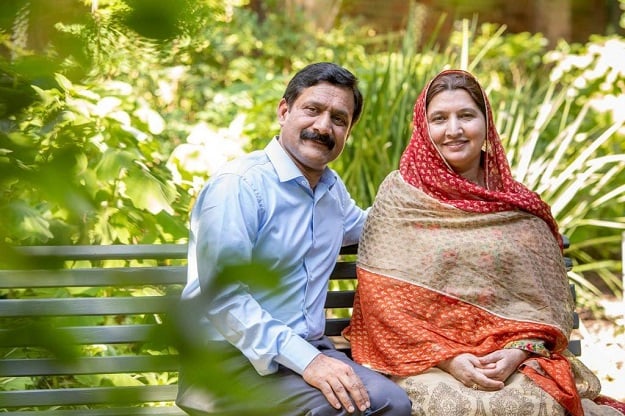 PHOTO COURTESY: ZIAUDDIN YOUSAFZAI
PHOTO COURTESY: ZIAUDDIN YOUSAFZAIWith the focus around Malala and the influence you have had on her personality, people tend to forget the role your wife has played in raising and helping your family through hard times. In the book, you present a moving account to remedy this. Can you please elaborate on that for young readers?
I think the speciality of my book is the story of my sons and my wife, and my sisters as well. To be honest, my wife is the real power, the reality behind both Malala and myself.
I married her because I liked her, she was so beautiful. I saw her when I was thirteen-years-old, and her beauty attracted me to her. We were engaged and married a few years afterwards. My life is a kind of journey of knowing more about her, and I have found her very wise, very intelligent, very smart. Usually, husbands in Pashtun society rarely consult their wives when they are in trouble. In my life, it was a very different thing. Whenever I found myself in trouble, or whatever kind of problem came through, the first person I asked or sought the advice of was my wife, Toor Pekai.
I remember that in the hardest times of our lives, which was the Talibanisation of Swat Valley, she was the person who motivated both me and Malala to stand up, to rise up, and to speak up. Malala and I owe so much to her, and I am very thankful to God that I have the company of this great lady in my life partner, a friend. She has a very good heart, and if you read you will find that she is a secret social activist, and has a compassionate heart. She is not only sympathetic to the plight of others but also empathetic, which makes her so special.
Pakistan has come a long way in the last few years. Politicians often say education is the key to ending extremism in society. But then, there are highly-educated radicals apprehended almost every day. Where is society going wrong?
Violence and terrorism come because of extremism and intolerance, and we have had this extremism in our country, in our political, historical background, and now it is a part of the curriculum. In the past, it was state policy to groom children who were intolerant to other faiths, religions and ethnicities, and we just grew a generation of an intolerant lot.
We are suffering every day because of that. If you go through social media, if you go through the television talk shows, you see people who are like war-mongers. They do not teach love or respect, tolerance and democracy, rather, they are spreading the ideology of division, hate and extremism. We, as a nation, and Pakistan, as a state, have to decide and have to accept, that this kind of extremism is not helping anyone. No one is benefiting from it because the politics in the world is changing, and we have to change ourselves now.
We are not going to fight more Afghan wars or more wars on terrorism. We have to build our country with the values that all great nations have. And I personally believe that our national value should be rule of law and respect for others, indifferent to their caste, color and ethnicity. Individual liberty and freedom of expression, freedom of practising one's faith, and democracy, should be our social values. They will strengthen our country and defeat the ideology of extremism and intolerance.
I also have to ask, when are Malala and the family coming back to Pakistan?
This is a very good question. But unfortunately, I do not have a clear answer to this question. We were very lucky that we had a great trip to Pakistan this year in March, and it was so rewarding, so refreshing and so helpful. Pakistan is our first home.
We are at peace in the UK, my children are in school, we are happy, but to be honest, the separation from our country, it is a very painful thing, may God protect people from losing a living in their own countries. It is something you feel when you lose it and going back to Pakistan, it is really what we want, that is what our goal is, that is where our home is, and that is where we can make a difference.
Do you have any message for the readers of The Express Tribune?
Yes, and my message is very simple and it is for everyone. For the brilliant readers of The Express Tribune, and for my countrymen and for people around the world.
I do not ask them to do something that needs rocket science, my simple message is: Believe in your dreams, believe in your daughter, believe in your wife, believe in yourself.
I ask my countrymen, particularly the ones from rural areas, who live with all these patriarchal social norms, to stop putting up barriers in the way of their women. Be brave, and change themselves. The world has gone so far ahead, if you want prosperity, peace and good quality of life, do not stand in the way of change. Unless and until we include our women in our progress, we will not be able to move forward. A bird with a single wing cannot fly, we need both of our wings to be strong, healthy and active, to fly high, to herald prosperous and peaceful societies and communities.
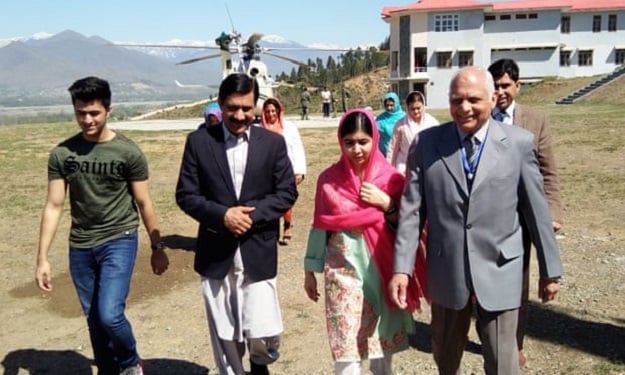 Malala Yousafzai and her father, Ziauddin, during her visit to Pakistan. PHOTO: AFP
Malala Yousafzai and her father, Ziauddin, during her visit to Pakistan. PHOTO: AFPLet Her Fly
Let Her Fly narrates the story of Ziauddin Yousafzai, father of the youngest Nobel laureate in the world, from humble beginnings as the stammering son of a schoolteacher in a tiny, mountainous Pakistani village, to a United Nations Global Ambassador for education.
The book is not a traditional biographical account but is instead divided into chapters which detail how Yousafzai became the man he is today by exploring his relationship as a son, as a brother, as a husband and as a feminist father.
Absurdities of contemporary warfare collide as satirical thriller bites literati
Born to a conservative family in Khyber-Pakhtunkhwa (K-P), he grew up with all the benefits a patriarchal society lavishes upon a young boy, as he had better shoes, better meals and better schooling compared to his sisters. Despite the fact that Yousafzai found these inequalities rather uncomfortable, he was discouraged from questioning them.
However, question them he did. The book is littered with examples of Yousafzai standing up for social change and gaining little victories in the process. He won a debate competition for his school as a teenager despite having a speech impediment, he forcibly included Malala in his family tree (which had until then just included the names of men), and he famously resisted the attempts of Taliban to shut down schools and colleges in Swat Valley, among other things.
Child stunting rates highest in South Asia: report
In addition, the book provides a fascinating account of his role as a father to two sons, a brother to five sisters, and a husband. Yousafzai says his sons have been brought up from a very young age to believe that women are equal to men and that the correct way to right a wrong is through love and grace. However, Ziauddin Yousafzai has stressed that young boys will learn only if the parents practice what they preach. His attitude to his wife and his daughter, he says, is what sets the correct example for his sons.
The book also delves into detail about the relationship Yousafzai has with his wife, and how it has changed and transformed him for the better. Probably the most moving part of the book is detailed in these pages, as the author strives to explain how the woman (who is learning to read and write) has handled the extraordinary journey from Swat to Birmingham (where the family currently resides).
Simple in language, innovative in approach, and stressing on the need to begin social change at the individual level, Let Her Fly is a gripping read which aims to celebrate the power of liberty, justice and equality for all.



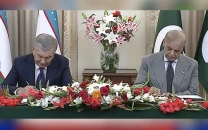
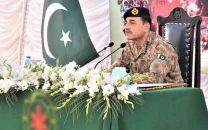

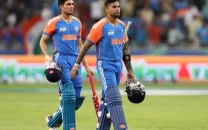












COMMENTS
Comments are moderated and generally will be posted if they are on-topic and not abusive.
For more information, please see our Comments FAQ